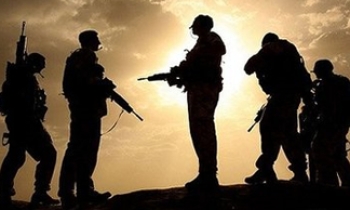A move is afoot to arrest "the onslaught of negative reporting by the Western media which have tarnished the image" of Islam and Muslims. To start with, a meeting of senior officials of the Organization of the Islamic Conference (OIC) member states Monday vouched for revamping of the International Islamic News Agency (IINA) and the Islamic States Broadcasting Organization (ISBO), Arab News has reported.

The three-day meeting was a prelude to the seventh session of the Islamic Conference of Information Ministers (ICIM) that begins in Jeddah on Wednesday. The proposal to merge IINA and ISBO, first suggested by OIC Secretary-General Ekmeleddin Ihsanoglu, met instant approval from host Saudi Arabia and many other countries. The merger idea was subsequently dropped, according to Bernama. A new governing board, whose members will consist of the heads of the news agencies of OIC member states, will be set up to supervise IINA while the ISBO will be turned into a union.
The nine news agencies on the board are from Indonesia and Turkey which together with Malaysia will represent Asia, while the Middle East will be represented by Egypt, Qatar and the United Arab Emirates, and Africa by Cameroon, Senegal and Nigeria. The board, which will have to find new directions and revitalise the cash-strapped IINA, will be headed by the culture and information minister of Saudi Arabia.
The new Islamic States Broadcasting Union (ISBU) will have a 12-member board of trustees also with Saudi Arabia in the chair. The members of the trustees board would be Tunisia, Egypt, Jordan and Syria representing the Middle East; Gambia, Guinea, Mali and Uganda for Africa; and Iran, Pakistan, Turkey and Kazakhstan for Asia. The ISBU's role will be to provide new information perspectives to the benefit of OIC members and cultivate close and permanent relationship with regional and international counterpart unions.
In its working paper, Saudi Arabia's ministry of culture and information at the onset said the current situation of the both IINA and ISBO called for their restructuring. The Saudi paper pointed out the reasons behind the failure of the two organisations to live up to their stated aims when they were initially created. It blamed the organisations' failure on "the slow implementation or rather lack of implementation of the resolutions adopted by the executive boards of these two institutions and poor cooperation and communication in news and programming with the Islamic states."
It also blamed their ineffectiveness on the "decreasing level of contributions by the (OIC) member states to the budget of these two institutions, which made it impossible for them to implement the programming plans that are decided every year within the executive bodies."
The meeting agreed that the members of the governing board of IINA would comprise nine news agencies – three each from the Middle East, Africa and Asia with Saudi Arabia as the host country. It was also agreed that the board should invite organisations of news agencies such as the Organisation of Asia-Pacific News Agencies (OANA), Pan-African News Agency (PANA) and other relevant news bodies as observers in the IINA governing board.
As for the proposal to turn ISBO into the Islamic States Broadcasting Union (ISBU), the Saudi official said said the union could be run commercially and its board members represented by four member countries each from the same regions as on the IINA board with Saudi Arabia also as the host country.
The IINA, a specialised organ of OIC, was established in 1972. Headquartered in Jeddah, its main objectives were to enhance and preserve the Islamic cultural heritage, strengthen ties among Muslims all over the world and increase understanding of them. It, however, failed in achieving any of its objectives as pointed out by the OIC member states in their working papers at yesterday's preparatory meeting.

Turkish officials, too, backed the merger idea initially. "Today, issues such as the clash of civilizations and Islamophobia are challenges that make an effective communications strategy among the member states all the more important," they said in their list of proposals. "Although established with good intentions ... IINA and ISBO have not been able to live up to the exigencies of our times," they said in their paper.
Among other proposals, Turkish officials suggested that an Internet news portal could be developed. "Each news agency from the member states should be asked to send a certain number of news items and pictures to the pool every day. Each contributing agency should be free to use all the news and pictures available in the pool. The pool could be made available to Western news sources as well."
In addition to the text news, the Turkish officials felt, "a similar mechanism should be formed for visual media that would allow radio and television institutions of the member states to cooperate in a model similar to European Broadcasting Union."
In order for the new unified news organization to be successful, Turkey said qualified and experienced professionals currently working in the news business in the member states should be employed. "Seminars and training programs should be organized in cooperation with internationally renowned news agencies and radio and television channels."
On how to deal with the foreign media efficiently, the Saudi ministry also suggested several actions. Among them were to "strengthen the bonds with international television and radio channels as well as with strong media publications; to encourage Muslim businessmen to set up radio and television channels in the US, Europe, China and other countries; to make the best use of the Internet with a view to showcasing Islam and Muslims, correcting stereotypes and cliches about Islam and initiate serious and positive dialogue between religions and to reinforce relations between foreign-based civil society organisations and their counterparts in the Islamic world."
On Friday, the Saudi minister for information and culture, Iyad Madani, came down heavily on the media in Islamic nations, Arab News reported. "In Bosnia, in Nigeria, in Mindanao, did any of the Arab or Islamic media people go there?" he asked. "Our media establishments lack fieldwork. I don't mean any offense, but coming to attend this press conference and reporting about it in the newspaper tomorrow is the easiest thing. The difficult part is to go to Mindanao to cover a major catastrophe."
Madani said media establishments in the OIC member countries were responsible for developing the media. "The media in the Muslim and Arab world are dependent on the foreign media because they are the most active, reporting from the centers of conflict," he said. "Arab and Muslim media establishments should support their employees and make available the facilities and tools for them to report from conflict zones."









